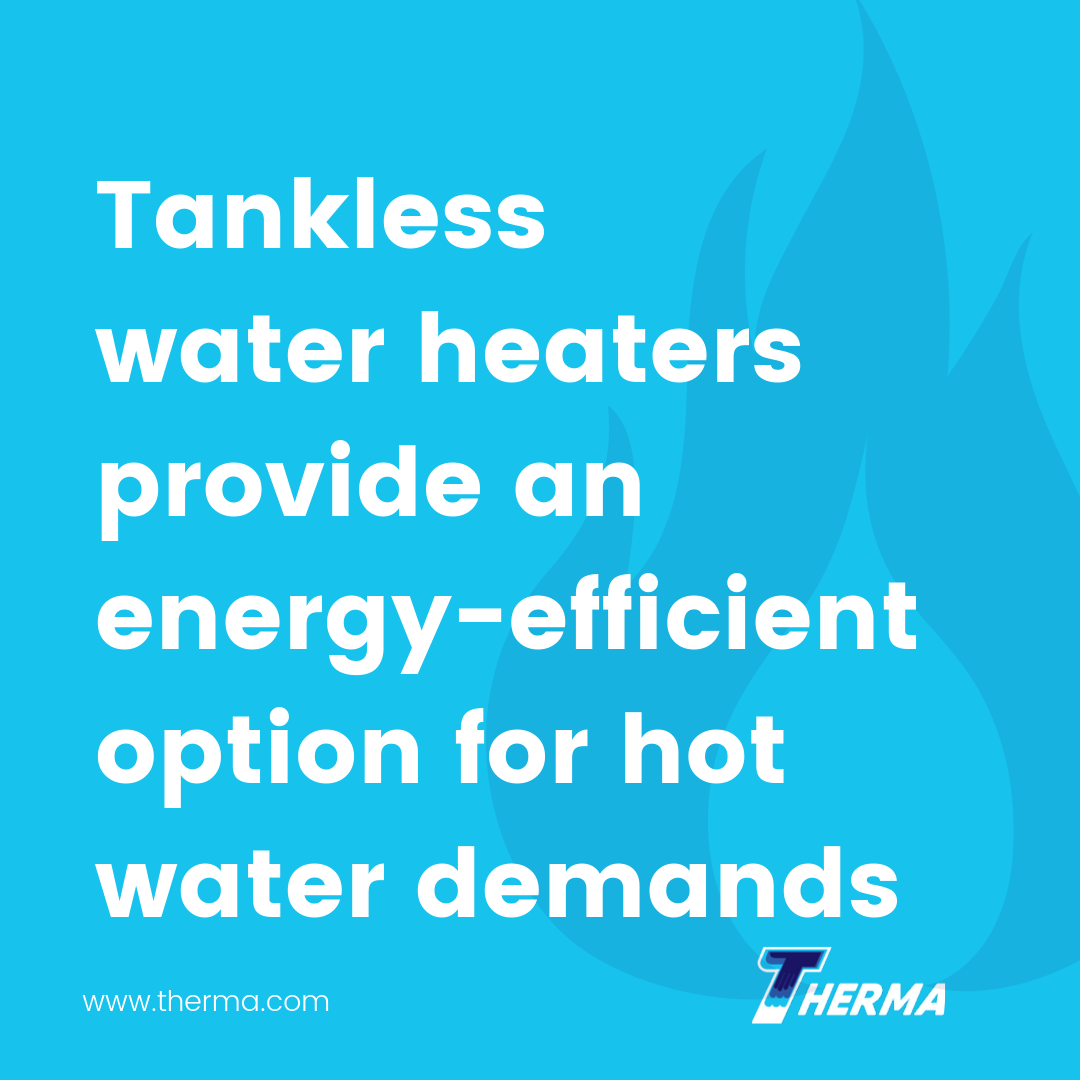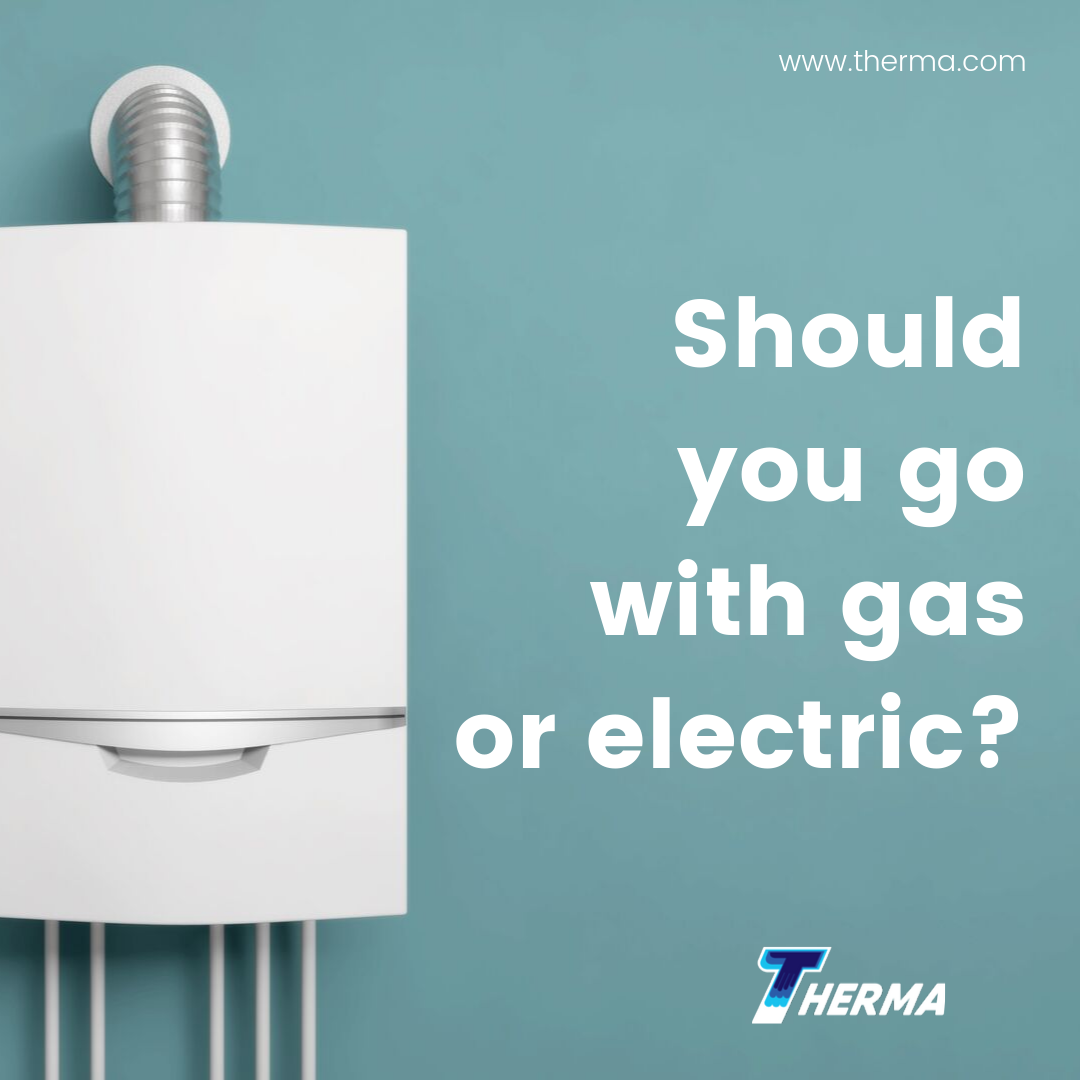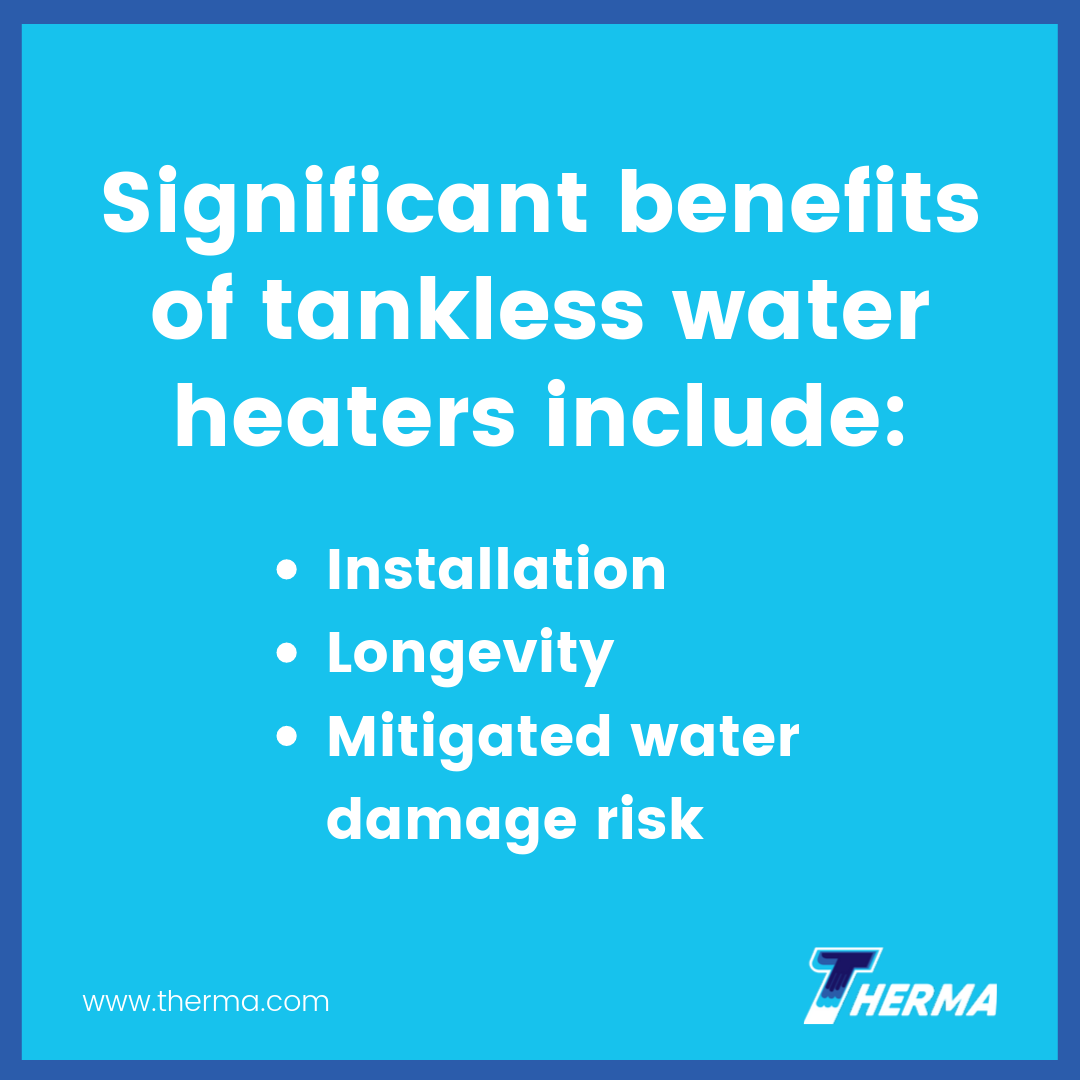Why You Should Consider Tankless Water Heaters and Their Benefits
By Freedom Ahn
Tankless water heaters provide an energy-efficient option for hot water demands, delivering heated water without the added need for a bulky storage tank. Although not practical for all industries, (for example, the hospitality industry’s excessive demand for hot water at hotels and resorts can often render them unprofitable), tankless water heaters can provide tremendous savings when it comes to energy consumption in buildings with a standardized need for heated water during regular business hours.
How Tankless Water Heaters Work
A tankless water heater consists of a small flat pass-through heater which can be either electric or gas-powered. Water is piped to the heater, then heated on demand when the hot water tap is opened at a faucet, shower or machine. This can typically provide from 2 to 8 gallons of hot water per minute (GPM) or more, depending on the size and style of the pass-through heater.)
Electric Tankless Water Heaters
Electric tankless water heating is the most widely used variety since small tankless heaters can be placed at the point-of-use, eliminating the need for large tanks requiring regular power use to keep a large water supply heated. The electric style of these types of heaters typically deliver hot water at a rate of approximately 8 GPM or less, depending on size. Electric, tankless water heaters have an energy efficiency rating of roughly 98% and require little or no maintenance.
Gas Tankless Water Heaters
Gas tankless water heating allows a centralized system to be more easily created, reducing costs even more than an electric system. Gas heaters have a slightly lower energy efficiency (around 80 to 85%), but this can often be offset by the difference in cost between electric and gas power. A gas tankless water heating system can produce more water per minute than an electric system (more than 8 GPM). However, the setup can be more complex, requiring specialized venting. Gas water heaters require regular maintenance.
Benefits of Tankless Water Heaters
The main advantage of installing a tankless water heater is the savings in “standby power” use, which can be considerable—especially in commercial buildings that are used for only 10 to 14 hours out of 24. Cost savings can climb up to 50% if an on-demand, electric tankless water heater is placed at each major usage point, reducing energy consumption even further. The point-of-use installation also results in less wasted water, since it takes a shorter time for hot water to reach the egress point.
Other significant benefits of installing a tankless water heater include:
Mitigated water damage risk
One of the most significant risks with a conventional water heater tank is a breach in the tank itself (often caused by slow corrosion and rusting over a long period). One out of 10 water damage claims filed with homeowners insurance companies can be traced back to either a hot water tank or a washing machine (the other home appliance most likely to hold large amounts of water.) With a tankless water heater, the risk of tens of gallons of hot water suddenly flooding your home is significantly reduced.
Longevity
A gas tankless water heater can often last up to 20 years if properly maintained and flushed at intervals to remove corrosive deposits. An electric tankless water heater can last upwards of 20 years, thanks to its design. In contrast, the average lifespan of a conventional water heater tank is only eight to 12 years. A tankless water heater is typically more expensive to buy, but the initial costs balance out after the first decade. The additional energy consumption savings make tankless heaters a wiser economic choice overall.
Installation
Since tankless water heaters are much smaller and lighter than conventional, tanked water heaters, they can be installed in a smaller space and don’t require significant bracing since there is no considerable water weight to be supported. In new builds, point-of-demand placement of electric, tankless water heaters can be efficiently designed into existing spaces, eliminating the need for large closets in which to hide a tank.
The case for tankless water heaters is clear—they win on virtually every front over conventional, tanked heaters and should be considered an integral part of plumbing in any new building design or construction interested in saving money and using space wisely, while increasing efficiency.
Biography
Freedom Ahn, MBA, is an expert business & technology writer specializing in AI, blockchain, mechanical engineering, and physics (incl. engineering physics); a self-professed supply-chain geek; and
an award-winning short-fiction author & playwright. She is also a freelance American-Japanese translation/transcreation consultant.
References
- https://www.energy.gov/energysaver/heat-and-cool/water-heating/tankless-or-demand-type-water-heaters
- https://www.insurancejournal.com/magazines/mag-features/2005/04/18/54689.htm
- https://www.energystar.gov/ia/partners/prod_development/new_specs/downloads/water_heaters/ElectricTanklessCompetitiveAssessment.pdf
- https://www.eia.gov/consumption/residential/
- https://www.consumerreports.org/cro/water-heaters/buying-guide/index.htm










